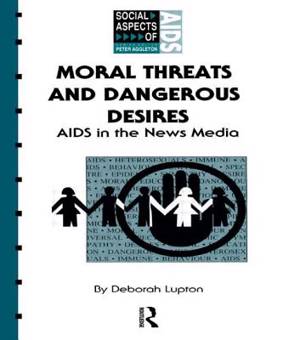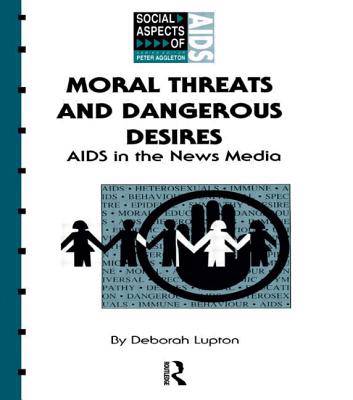
Je cadeautjes zeker op tijd in huis hebben voor de feestdagen? Kom langs in onze winkels en vind het perfecte geschenk!
- Afhalen na 1 uur in een winkel met voorraad
- Gratis thuislevering in België vanaf € 30
- Ruim aanbod met 7 miljoen producten
Je cadeautjes zeker op tijd in huis hebben voor de feestdagen? Kom langs in onze winkels en vind het perfecte geschenk!
- Afhalen na 1 uur in een winkel met voorraad
- Gratis thuislevering in België vanaf € 30
- Ruim aanbod met 7 miljoen producten
Zoeken
Omschrijving
Since 1981, AIDS has had an enormous impact upon the popular imagination. Few other diseases this century have been greeted with quite the same fear, loathing, and prejudice against those who develop it. The mass media, and in particular, the news media, have played a vital part in "making sense" of AIDS. This volume takes an interdisciplinary perspective, combining cultural studies, history of medicine, and contemporary social theory to examine AIDS reporting. There have been three major themes dominating coverage: the "gay-plague" dominant in the early 1980s, panic-stricken visions of the end of the world as AIDS was said to pose a threat to everyone, in the late 1980s; and a growing routinising of coverage in the 1990s. This book lays bare the sub-textual ideologies giving meaning to AIDS news reports, including anxieties about pollution and contagion, deviance, bodily control, the moral meanings of risk, the valorisation of drugs and medical science. Drawing together the work of cultural and politicaltheorists, sociologists and historians who have written about medicine, disease and the body, as well as that of theorists in Europe and the USA who have focused their attention specificaiiy on AIDS, this book explores the wide theoretical debate about the importance of language in the social construction of illness and disease. This text offers insights into the sociocultural context in which attitudes towards people with HIV or AIDS and people's perceptions of risk from HIV infection are developed and the responses of governments to the AIDS epidemic are formulated.
Specificaties
Betrokkenen
- Auteur(s):
- Uitgeverij:
Inhoud
- Aantal bladzijden:
- 196
- Taal:
- Engels
- Reeks:
Eigenschappen
- Productcode (EAN):
- 9780748401802
- Verschijningsdatum:
- 23/03/1994
- Uitvoering:
- Paperback
- Formaat:
- Trade paperback (VS)
- Afmetingen:
- 160 mm x 233 mm
- Gewicht:
- 344 g

Alleen bij Standaard Boekhandel
+ 210 punten op je klantenkaart van Standaard Boekhandel
Beoordelingen
We publiceren alleen reviews die voldoen aan de voorwaarden voor reviews. Bekijk onze voorwaarden voor reviews.









